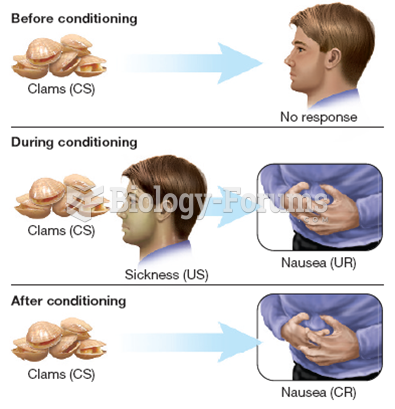|
|
|
Blastomycosis is often misdiagnosed, resulting in tragic outcomes. It is caused by a fungus living in moist soil, in wooded areas of the United States and Canada. If inhaled, the fungus can cause mild breathing problems that may worsen and cause serious illness and even death.
More than one-third of adult Americans are obese. Diseases that kill the largest number of people annually, such as heart disease, cancer, diabetes, stroke, and hypertension, can be attributed to diet.
In 1864, the first barbiturate (barbituric acid) was synthesized.
Cancer has been around as long as humankind, but only in the second half of the twentieth century did the number of cancer cases explode.
Drying your hands with a paper towel will reduce the bacterial count on your hands by 45–60%.







